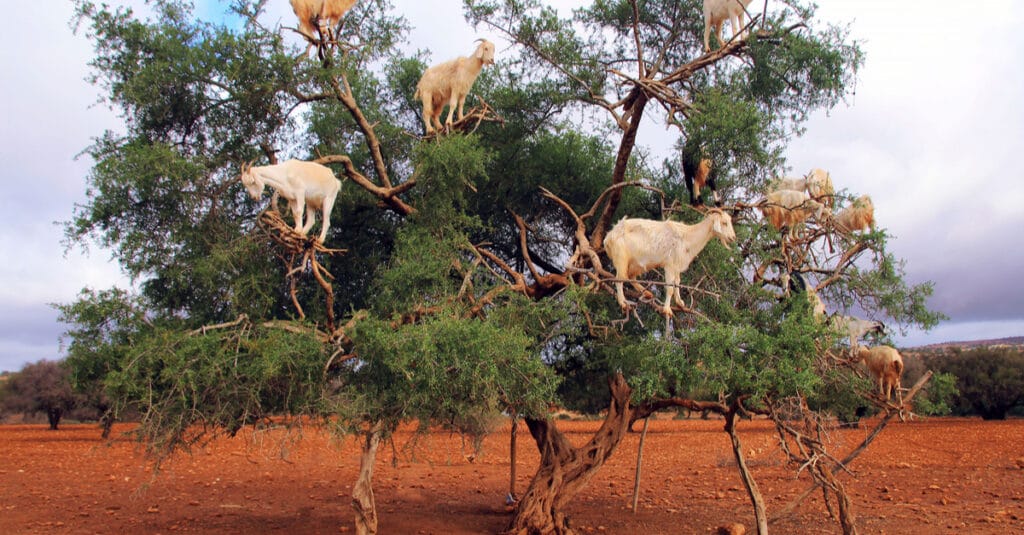An event was organised on May 10th, 2021 in Rabat, the capital of Morocco, to mark the very first edition of the International Day of the Argan Tree. The event was presided over by Aziz Akhannouch, the Moroccan Minister of Agriculture, Maritime Fisheries, Rural Development and Water and Forests, in the presence of several representatives of the United Nations system. The UN, the public authorities and civil society were asked to raise public awareness of the socio-economic and environmental value of the argan tree and to mobilise resources for its preservation.
“Protecting this cultural heritage is at the heart of the missions undertaken by the Kingdom of Morocco and the celebration of the International Day of the Argan Tree reinforces these efforts. This Day is an invitation to learn, share and celebrate this mythical tree, and a way to make its culture a lever for sustainable socio-economic development,” explains Omar Hilale, Morocco’s Permanent Representative to the United Nations.
The role of the argan tree in the environment
The argan tree is characterised by a short, often gnarled trunk with low branches and thorny leaves. The shrub grows in the northern region of Souss Massa in Morocco, in a difficult environment characterised by water scarcity, the risk of erosion, poor soil and temperatures of up to 50° Celsius. The argan tree relies on traditional water management provided by the Matifiya (a rainwater reservoir dug into the rock), thus contributing to climate change mitigation and adaptation and biodiversity conservation.
In addition to its resilience to climate change, the argan tree plays an economic and social role in the region. Argan forests provide fruit and fodder. The leaves and fruits are edible and highly valued, as is the undergrowth, and provide a vital fodder reserve for all herds, even in times of drought. The trees are also used as firewood for cooking and heating. Economically, argan oil is one of the rarest oils in the world and is considered the “liquid gold” of Morocco. It has many uses in cooking, medicine and cosmetics. Thanks to an ancestral know-how passed down from generation to generation, rural women use about 150 kilograms of fruit to produce 3 litres of argan oil.
On February 22nd, 2021, the UN General Assembly proclaimed May 10th, as International Argan Day. This was following a resolution, presented by Morocco, in New York on March 3rd, 2020. Prior to the proclamation of an International Argan Day, the United Nations had already shown interest in this ecological plant. In 1988, the United Nations Educational, Scientific and Cultural Organization (UNESCO) designated the endemic production area of this tree as the Arganeraie Biosphere Reserve. And in 2014, all the know-how concerning the argan tree was included in the UNESCO list of intangible cultural heritage of humanity.
Boris Ngounou
